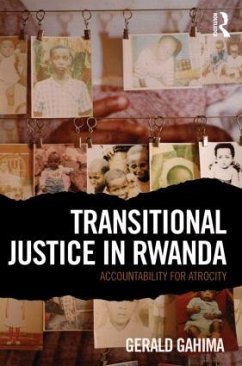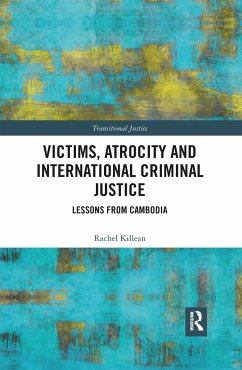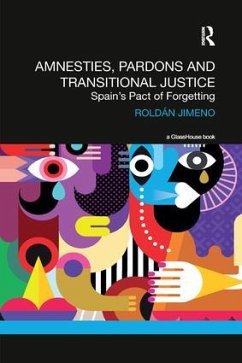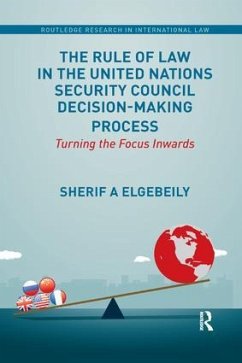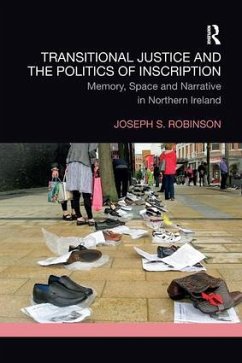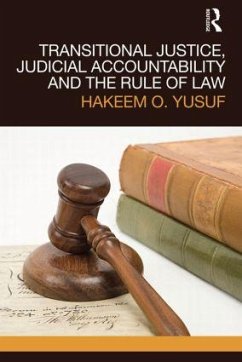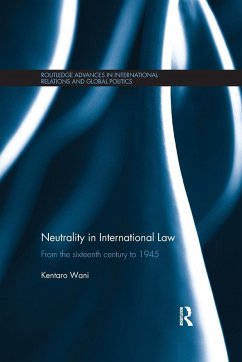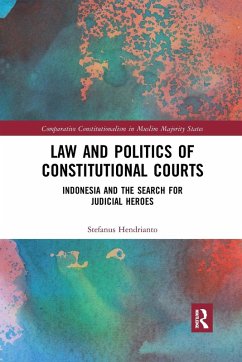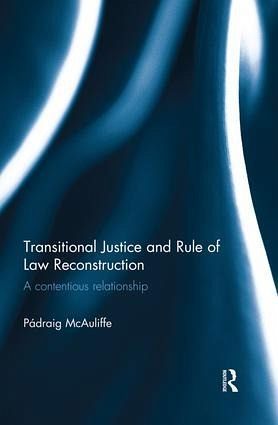
Transitional Justice and Rule of Law Reconstruction
A Contentious Relationship
Versandkostenfrei!
Versandfertig in 1-2 Wochen
42,99 €
inkl. MwSt.
Weitere Ausgaben:

PAYBACK Punkte
21 °P sammeln!
This short and accessible book is the first to focus exclusively on the inter-relation between transitional justice and rule of law reconstruction in post-conflict and post-authoritarian states. In so doing it provides a provocative reassessment of the various tangled relationships between the two fields, exploring the blind-spots, contradictions and opportunities for mutually-beneficial synergies in practice and scholarship between them. Though it is commonly assumed that transitional justice for past human rights abuses is inherently conducive to restoring the rule of law, differences in how...
This short and accessible book is the first to focus exclusively on the inter-relation between transitional justice and rule of law reconstruction in post-conflict and post-authoritarian states. In so doing it provides a provocative reassessment of the various tangled relationships between the two fields, exploring the blind-spots, contradictions and opportunities for mutually-beneficial synergies in practice and scholarship between them. Though it is commonly assumed that transitional justice for past human rights abuses is inherently conducive to restoring the rule of law, differences in how both fields conceptualise the rule of law, the scope of transition and obligations to citizens have resulted in divergent approaches to transitional criminal trial, international criminal law, restorative justice and traditional justice mechanisms. Adopting a critical comparative approach that assesses the experiences of post-authoritarian and post-conflict polities in Latin America, Asia, Europe and Africa undergoing transitional justice and justice sector reform simultaneously, it argues that the potential benefits of transitional justice are exaggerated and urges policy-makers to rebalance the compromises inherent in transitional justice mechanisms against the foundational demands of rule of law reconstruction. This book will be of interest to scholars in the fields of transitional justice, rule of law, legal pluralism and peace-building concerned by the failure of transitional justice to leave a positive legacy to the justice system of the states where it operates. 'This is a bold and nuanced scrutiny of the international system's approach to transitional justice and the much vaunted rule of law project. Dr McAulifee should be congratulated for this well-researched book which should be a must read for not only scholars and researchers in transitional justice and peace and conflict studies, but also policy-makers in the international system.' Dr. Hakeem O. Yusuf, Senior Lecturer, University of Strathclyde and author of Transitional Justice, Judicial Accountability and the Rule of Law.





